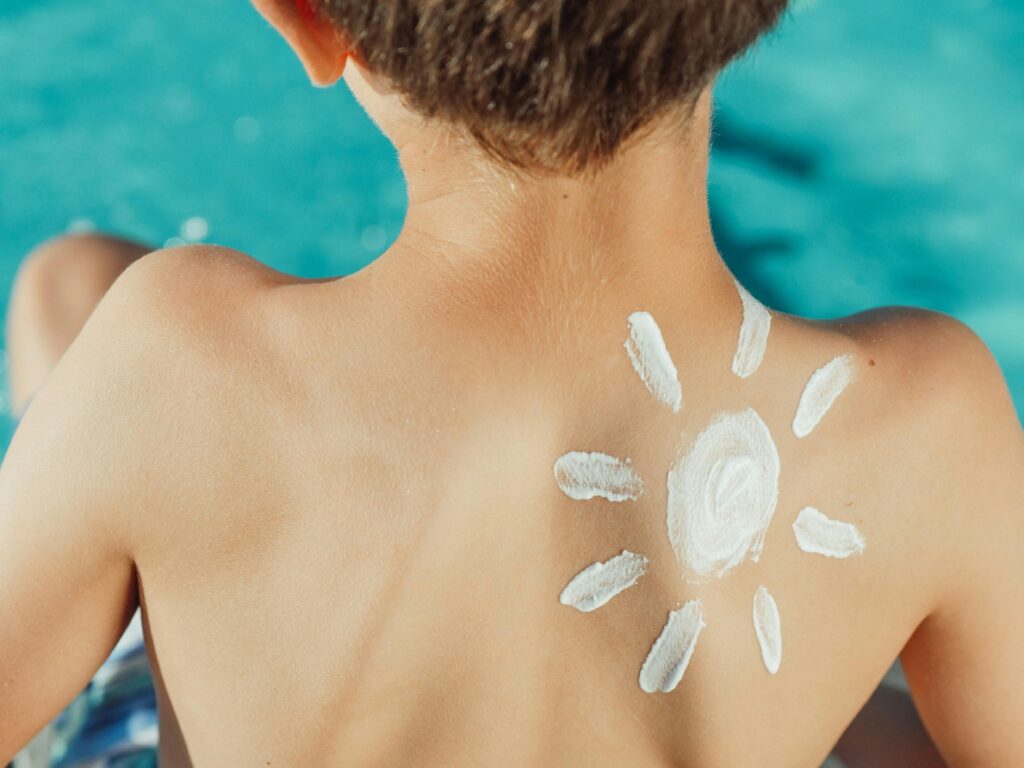In the quest for healthy, protected skin, sunscreen is an essential tool. However, not all sunscreens are created equal. Broadly speaking, sunscreens fall into two categories: physical (or mineral) and chemical. Understanding the differences between these two types can help you make an informed decision about which one is best for your skin.

What is Physical Sunscreen?
Physical sunscreens, also known as mineral sunscreens, contain active mineral ingredients like zinc oxide and titanium dioxide. These minerals sit on top of the skin and act as a physical barrier, reflecting and scattering harmful UV rays away from the skin.
How Physical Sunscreen Works:
Physical sunscreens work by creating a physical barrier on the skin’s surface. When UV rays hit the skin, these minerals reflect them away, preventing the rays from penetrating the skin.
Pros of Physical Sunscreen:
1. Broad-Spectrum Protection: They provide broad-spectrum protection against both UVA and UVB rays.
2. Immediate Protection: They work immediately upon application, so there’s no need to wait before going outside.
3. Less Irritation: They are less likely to cause skin irritation, making them ideal for sensitive skin.
4. Longer Shelf Life: They often have a longer shelf life compared to chemical ones.
Cons of Physical Sunscreen:
1. Cosmetic Drawbacks: They can leave a white cast on the skin, which is more noticeable on darker skin tones.
2. Heavier Feel: They can feel heavier and may be less comfortable for some users, especially in hot and humid conditions.
3. Frequent Reapplication: They can be easily rubbed or washed off, requiring more frequent reapplication.
Buy Vasl Sunscreen here


What is Chemical Sunscreen?
Chemical sunscreens contain organic (carbon-based) compounds, such as oxybenzone, avobenzone, octisalate, octocrylene, homosalate, and octinoxate. These chemicals absorb UV radiation and convert it into heat, which is then released from the skin.
How Chemical Sunscreen Works:
Chemical sunscreens penetrate the skin and absorb UV rays before they can damage the dermal layers. The absorbed UV rays are then transformed into heat and released from the skin.
Pros of Chemical Sunscreen:
1. Cosmetically Elegant: They are often more cosmetically elegant, leaving no white residue and feeling lighter on the skin.
2. Easier to Apply: They are easier to rub into the skin without leaving a visible residue.
3. Less Frequent Reapplication: They tend to be more resistant to sweat and water, though reapplication is still necessary, especially after swimming or sweating.






Cons of Chemical Sunscreen:
1. Wait Time: They typically require about 20 minutes after application to become effective.
2. Potential for Irritation: Some ingredients can cause skin irritation, especially for those with sensitive skin.
3. Environmental Impact: Certain chemical sunscreen ingredients have been shown to harm coral reefs and marine life, leading to bans in some areas.
You can Buy Vasl Sunscreen Here. It provides you protection from harmful UVA & UVB rays
Which One Should You Choose?
Choosing between physical and chemical sunscreen depends on your skin type, lifestyle, and personal preferences.
– For Sensitive Skin: Physical sunscreens are generally better as they are less likely to cause irritation.
– For Daily Use: If you prefer a lightweight, non-greasy feel, chemical sunscreens might be more suitable.
– For Outdoor Activities: If you spend a lot of time in the water or sweating, a water-resistant chemical sunscreen can provide more durable protection.
– For Immediate Protection: If you need instant sun protection, a physical sunscreen is the way to go.
Conclusion
Both physical and chemical sunscreens offer effective protection against the sun’s harmful UV rays. Understanding the differences can help you choose the right one for your needs, ensuring your skin stays protected and healthy. Remember, the best sunscreen is the one you will use consistently. Whether you prefer the mineral barrier of physical sunscreens or the ease and elegance of chemical formulas, applying sunscreen regularly is key to preventing sun damage and maintaining healthy skin.






More Information about the the difference between Physical and Chemical Sunscreens can be found here
